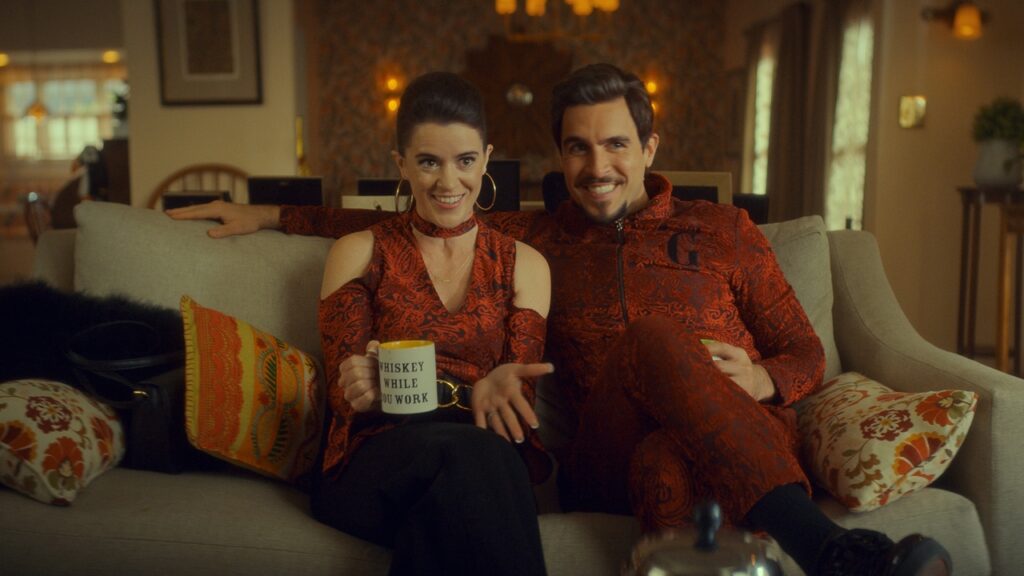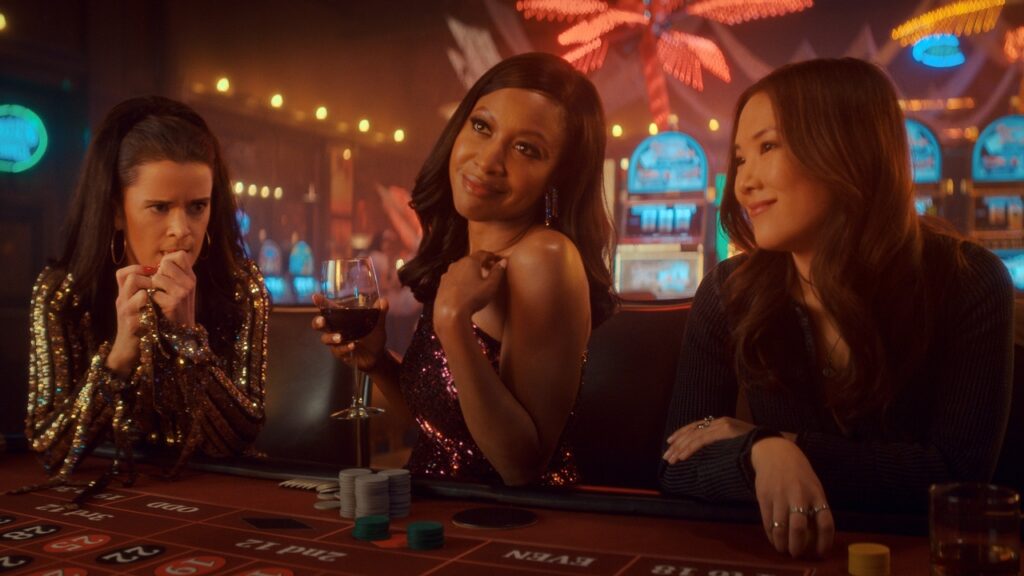Read also:
How to Watch FX Live Without CableHow To Watch AMC Without CableHow to Watch ABC Without CableHow to Watch Paramount Network Without CableIn Season 1, The Big Door Prize felt like a cracked mirror version of a small-town Stephen King story. When the Morpho Machine—a device that spits out a card revealing the user’s “potential”—arrives in Deerfield, it does indeed disrupt life. However, most Deerfield residents are nice. Or, at least, they’re not mean in the “could be tempted by Randall Flagg or Leland Gaunt” way. As a result, the disruptions were more of a “the principal buys a motorcycle” and “that dad grieving the death of his son declares himself sheriff without ever abusing power.” No escalating series of pranks culminating in out-and-out bloodshed or betraying one’s former friends to the dark embodiment of evil found here.
For those expecting The Big Door Prize Season 2 to start stacking the bodies like cordwood, I have bad news. It keeps the King’s small-town vibes without wandering into King’s “the secrets we keep will literally tear us apart” territory. Opening moments after Season 1’s end, the Morpho machine has stopped spitting out cards, instead offering the town folk a move to the next level. While the result is, essentially, yet another projective test, the results bring a distinctly different flavor to the mix. While the series retains a certain goofiness, it also gains a sadder complexity. The longer we look at the characters, the more forced their good-time silliness becomes. Instead of the exception, Season 1’s Father Reuben (Damon Gupton) centric fourth episode feels more like Season 2’s template.

To find that tone, the series does reshuffle its character decks. Many of the students we met last year are nowhere to be seen, for instance. New characters are introduced, including a music teacher played by Justine Lupe. Others, like Cass’s (Gabrielle Dennis) best friend Nat (Mary Holland), get a much bigger spotlight. The overall result gives the series a stronger ensemble feel, even if it is not necessarily without downsides.
No character becomes more muddied by the shift than poor Dusty (Chris O’Dowd). Still ostensibly the series’ protagonist, Dusty becomes increasingly unpleasant as The Big Door Prize Season 2 progresses. Whether that feels dramatically satisfying or merely frustrating will likely depend on one’s capacity for indecisiveness. If you dig Hamlet, you’ll be fine. If you find the Danish Prince’s waffling too much to deal with, though, Dusty might very well drive you up the wall.

To be fair, he and his wife, Cass, have created a situation bound to create confusion, disappointment, and hesitation. In an attempt to give their “potential” a real shot, they elect to separate for six weeks. For Cass, this means a series of attempts at finding a new way of living that almost immediately gets derailed. For Dusty, it leads to flirtations with a fellow teacher and ever-escalating levels of difficulty finding a place to live.
The distance also reveals an uglier side of Dusty. It was a side present in season 1, in retrospect. However, the audience easily ignored Dusty’s flaw among the gags and his unraveling sense of self. As Cass comes to realize—and The Big Door Prize Season 2 increasingly highlights—Dusty can be cutting and dismissive in his own quiet, aw-shucks way. Additionally, his indecisiveness often hurts others in the name of not making himself uncomfortable. For a show so defined by finding likability in the most unlikely of candidates—Josh Segarra’s wonderful performance as the obliviously arrogant yet truly kind restauranteur Giorgio, for instance—pushing the series’ lead into such territory is a surprising choice. Nonetheless, O’Dowd rises to the challenge, preventing Dusty from feeling like a villain without shying away from how his bad habits and choices make life difficult for those around him.

Complexity doesn’t necessarily mean unpleasantness, and The Big Door Prize Season 2 does plenty to sweeten up the world around the increasingly sour Dusty. The Morpho Machine pushes shop owner Mr. Johnson (Patrick Kerr) and Beau Kovac (Aaron Roman Weiner)—the would-be sheriff—into their past traumas, and the two emerge healthier and happier for it. Father Reuben and bartender Hana (Ally Maki) similarly make halting steps towards some kind of better life in the present.
These aren’t saccharine “it’s all better now” developments either. There’s a sense of investment and fragility in them. The storytelling seems to understand that people get happy events but not necessarily happy endings. It stings to watch Dusty toss a sneer at his wife’s latest attempt to find herself, but there’s comfort in a show that suggests even the people we like most can disappoint, and those we like least can surprise.
The Big Door Prize Season 2 is ready to take viewers to the next level beginning April 24 on AppleTV+.